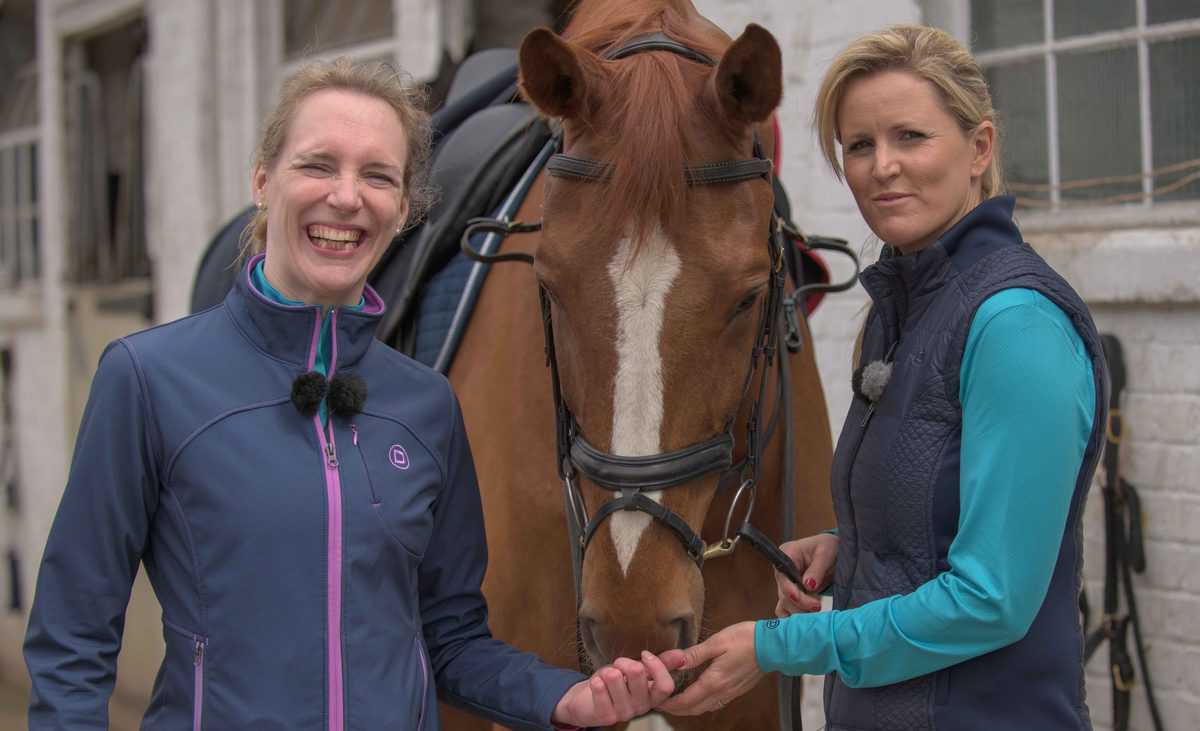Want to compete in Para Dressage? Sophie Christiansen has some great advice

Sophie Christiansen has competed in four Paralympic Games, winning a total of eight gold medals. Sophie also features in the latest episode of Rudall Rides With… so we asked her for advice on getting involved with Riding for the Disabled (RDA) and Para-Equestrian Dressage.
Why would you recommend the RDA?
When you are living with a disability you have to go through so many therapies, and it makes you feel different from all the other kids. What I loved about riding at the RDA was I felt normal. When I was on a horse I forgot all about my disability. So even though riding helped my balance and co-ordination, I didn’t see it as therapy.
How safe is it?
Getting on a horse is never risk free, as they are living animals with a mind of their own. But the RDA has systems in place to make it safe and their ponies are so well behaved. When I started out I had someone leading the pony and two people standing next to me. I then built up gradually, so I could eventually ride without assistance.
Even now I fall off occasionally! But that’s what makes you a rider.
What are the main challenges?
When I rode with the RDA there weren’t many challenges, because it’s so established and they really know what they’re doing. Things got more challenging when I wanted to step up a level and compete.
My RDA centre spotted my ability and said they couldn’t cater for my needs, so they suggested I try the South Bucks RDA. They introduced me to dressage.
What advice would you give to someone who wants to compete?
Anyone can ride for recreation, but when riders want to move up to the next level I’m always careful not to give false hope. First, athletes have to be classified, which may not cater for all disabilities. Also, the standard in Great Britain is so high, so you shouldn’t expect to compete at Tokyo if you’re just starting now. Feel free to prove me wrong though!
If you are classified as grade 1, 2 or 3 the RDA National Dressage Championships are a good introduction. That’s where I started and then I moved on to Para dressage from there.
But if you are a grade 4 or 5, I recommend sticking to the able-bodied system at first, to get the right level of understanding. You will need to be competitive in Advanced Medium and above to do well in these grades.
The RDA has a really good network and they should be able to help and support you, throughout your journey.
People can also reach out to Para riders like me, Tash [Baker], Lee [Pearson] and Sophie [Wells]. We want to see people coming up behind us, so we are more than willing to help out.
What type of horse do you need?
A lot of people think they can go out and buy a horse like Harry [Sophie’s new top horse] and get to the Paras, but it takes years and years on different horses to get there.
Horses in Para Dressage have got better and better, which means they can be highly strung and need careful management.
My advice when you first make the jump from RDA to Para-Equestrian Dressage is to buy a ‘stepping stone’ horse. You have to learn your trade on a safe schoolmaster. You’re not going to get 75% at first, but you will learn so much.
How has riding improved your quality of life?
I think any kind of sport, whether you are disabled or able bodied, gives you so many skills that you can use in day to day life, such as organisational skills, team work and the confidence to speak to others.
When I was younger I was very shy because of my speech, and riding gave me the confidence to speak to my peers and grown-ups.
Now I give talks at schools and I always talk about the balance of sport and education – because both really helped me deal with highly pressurised environments. If I got bored of text books I could go training, and if training to win gold medals became too much I could back to my education.
I also knew that if ever have to retire from sport I would always have my education and employment to fall back on. You need that back up, just in case it doesn’t happen.
You can find out more about Sophie’s rise to the top of her sport in Rudall Rides With Sophie Christiansen.






